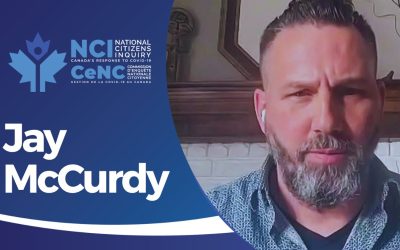As children across the country return to school, the National Post takes a look at the curriculum issues that are flashpoints in their respective regions and examines how the most controversial subjects are taught. Today, teaching environmentalism in Alberta.
Six months ago, residents of the cattle country south of Calgary invited a climate scientist to town to speak to 140 students from J.T. Foster High School in Nanton and bused in from nearby Claresholm. The guest was Tim Ball, a prominent Canadian skeptic of the theory of man-made climate change and perennial bugaboo of the green lobby.
The school had been showing An Inconvenient Truth, the contentious Al Gore movie about global warming, in class, much to the consternation of a number of locals.
“I think that we are lucky in a small rural community as a lot of things that kids are ‘taught’ in school are headed off fairly quickly,” one of the speech’s organizers, Callum Sears, said in an email. When he first approached the principal about bringing Mr. Ball to speak, something strange happened. “I just kept running into roadblock after roadblock,” Mr. Sears recalls.
In Calgary he eventually went to the parent council, which helped press the principal and teachers into co-operating. The lecture was a hit.
“Environmental education suffers [in Alberta] in part because we’re dealing in a pretty backwards philosophy from the current provincial government,” says Rob Macintosh, former president of the Pembina Institute, an environmental think-tank.
“Students have been told the opposite for so long and so often that they are really interested to hear someone whose message is completely different than the one they’ve been force-fed,” Mr. Sears says.
Not everyone was enamoured, though. After addressing the students, Mr. Sears donated 30 tickets to school staff to hear Mr. Ball at the local agricultural society’s fundraiser later that evening. Just one teacher showed up.
Perhaps the rest had heard enough at that point. Or maybe they had other plans. But Mr. Ball suspects that they may have been boycotting his message, which casts evidentiary doubt on whether greenhouse gas emissions cause global warming. If most teachers had their way, he says, students would be taught environmental theories straight from Al Gore’s script. But in Alberta, Mr. Ball says, parents and students have always seemed more interested in hearing competing ideas.
That has much to do with the province’s dependence on the resource industry (energy accounts for 25% of its GDP, 70% of exports and more than one-third of government income) and the fact that so many students’ parents rely on energy companies — or at the very least, the economic ripples the industry creates — to pay the bills.
But Mr. Ball remembers the same thing happened years ago, when Alberta parents led the way to push on to the provincial curriculum a resource called “Agriculture in the Classroom.” Stunned to discover their children were being taught fictions about farming by teachers who had often never stacked hay themselves, parents persuaded the province to adopt the farm-friendly program to ensure their children got another side of the story on that matter, too.
When it comes to where their bread is buttered, it seems parents in Alberta have not hesitated to meddle in the classroom so that their children know it, too, which these days means any discussion of environmental risks comes alongside important lessons about economic reality.
Environmental groups here wish aloud for a school curriculum like the one recently unveiled in Ontario, which is to begin “integrating environmental education into all subjects in all grades” and enforce “environmental education standards” during curriculum reviews. But with less than 2% of its economy riding on the business of extracting and exploiting non-renewable resources, far fewer Ontario parents have an interest in keeping their children’s classrooms free from anti-oil polemics.
Talk to Alberta teachers, however, and more than a few admit broaching the subject of sustainability in classrooms that are largely paid for, and are in the same postal code as energy businesses, can be a minefield.
“I can’t imagine teaching in Fort McMurray; how would you even begin to teach about the tar sands?” says Rita Poruchny, president of the Alberta Teachers’ Association Global, Environmental, and Outdoor Education Council (GEOEC). “The kids are driving right by those tailing ponds. Every issue is right out the back door.” David Suzuki gives dozens of talks to Canadian students every year. When he does it in Calgary, it makes the front page. When he spoke last year to a Grade 3 class at Altadore Elementary School — located in an upscale urban neighbourhood that is home to many of the city’s white-collar energy workers — Mr. Suzuki railed about the oil sands and the province’s tread-lightly approach to regulation; a schoolhouse talk that might have gone unnoticed anywhere else elicited outrage from newspaper editorialists (“overblown theatrics” and “wildly inaccurate statements,” said the Calgary Herald) and even the Premier himself accused Mr. Suzuki of “unproductive emotional rhetoric and personal attacks.”
The environmentalist is more popular with the Alberta Teachers’ Association, which has invited him to a few conferences. The union’s GEOEC newsletters echo many of Mr. Suzuki’s attitudes — blaming “massive resource exploitation” for natural disasters and politicians for “fear-mongering about perceived terrorist threats” rather than focusing on the environment.
While An Inconvenient Truth is available through almost every school board resource library, there are no board-approved resources focusing on the scientific doubts about man-made climate change theory, points out Norman Kalmanovitch, director of Friends of Science, an Alberta-based, non-profit organization dedicated to countering the International Panel on Climate Change’s version of the global warming narrative.
The group has tried convincing Alberta school boards to authorize teachers’ resources that promote alternate climate-change theories, such as sun spot activity, but so far, Mr. Kalmanovitch says, he’s had no luck. The group offered recommended edits to update the science in the province’s existing teaching resource, “Creating a Climate of Change,” which, as the name implies, takes as a given the existence of man-made climate change. It presents as fact, for example, statistics from the IPCC that have since been called into question — an infamous “hockey-stick graph” once thought to show radical changes in temperature over the past millennium, which has since been undermined by Canadian studies that found the data flawed.
But while some Albertans fret about students being indoctrinated to scorn the resource industry that feeds so many of them and helps fund their education, environmentalists are just as worried that schools offer what one activist calls “token” lessons about what they consider to be urgent issues for the classroom.
Environmental issues show up only briefly in provincial science guidelines: high school seniors can learn about “energy and the environment,” for example, but it is optional. Most discussion about the environment, particularly highly political issues such as climate change, gets lumped into social studies. That makes skeptics such as Mr. Ball uneasy, since he believes these lessons belong in science class, where students can learn to analyze and weigh the evidence for and against the prevailing version of things.
One unit in Grade 11 social studies requires teachers to introduce students to “the impact on human populations” of environmental worries: deforestation, desertification, pollution, irrigation and energy depletion, among others. The “greenhouse effect” is on the menu, but it is not compulsory.
That so much of the environmental lesson is left to teachers’ discretion may worry skeptics, but it also concerns those who desire more environmentalism from Alberta’s schools.
“What it means is a lot of teachers are scared to look seriously at hard environmental issues because they’re scared that they will be pitting protection of the environment against the jobs that their kids’ parents have.” says Rob Macintosh, a former president of the Pembina Institute, where he spent a decade operating the activist group’s educational arm.
Kathy Telfer, a spokeswoman for the Education Ministry, says curriculum adjustments are being rolled out gradually, and “the direction from the advice we are receiving is to strengthen the environmental stewardship component,” for elementary science students. She does not comment beyond that, but says the new curriculum for social studies “has a stronger emphasis on environment and sustainability, infusing various perspectives and taught from an inquiry-based approach.”
If that means weighing the various theories about the existence and purported causes of global warming — from the believers to the skeptics — it could mean parent groups will no longer have to pester school administrators to host lectures from the likes of Mr. Ball, though it is bound to sow further despair among environmental activists who think the province already leaves room for too much dissent.
“You’re tiptoeing on eggshells simply approaching the topic,” says Mr. Macintosh. “If there are seven scientists globally who disagree with the 20,000 scientists who’ve achieved a consensus through the IPCC … you feel obliged to give equal weight to those seven scientists. That’s not really providing an accurate picture of the general weight of scientific opinion.”
He believes educators avoid controversy by sticking with what he calls “superficial” environmental subjects: recycling, the role of watersheds, forest health, endangered species — the sorts of things that are less contentious.
Not all educators believe Alberta’s teachers instinctively steer clear of the subject of climate change. Rather, says Noel Jantzie, a Calgary social studies teacher, good educators know to treat the subject carefully, keeping in mind the sensitivity of parents who might have doubts, and being cautious not to make children feel guilty about their parents’ line of work.
“It’s a question of appropriateness and providing, good, unbiased material,” he says. As past president of the union’s GEOEC, Mr. Jantzie’s pro-environment credentials are solid, but he delights when there is debate over issues in the classroom — and there often is.
And whether that comes from teachers mindful of the political and economic currents in Alberta or not, adds Ms. Poruchny, it is probably better than the alternative: shoving a single point of view down children’s throats: “The worst thing you could do in the educational system is not have a balanced approach. That’s our job as educators: to make our kids thinkers.”


